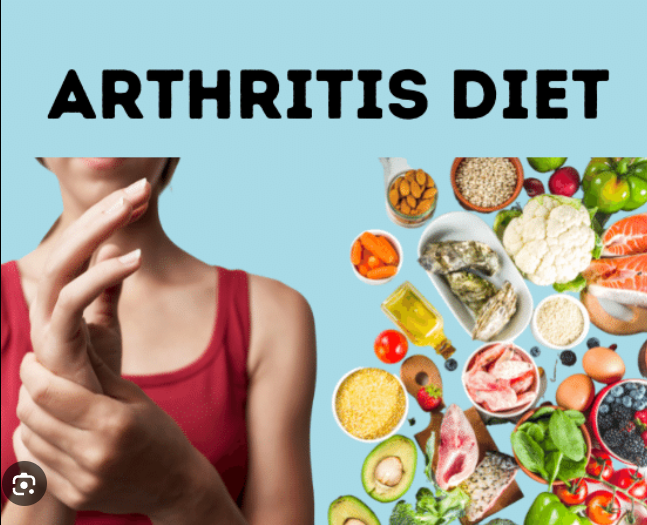Discover why nutrition matters if you or a loved one has arthritis, and look at the foods that aggravate and relieve arthritis pain.
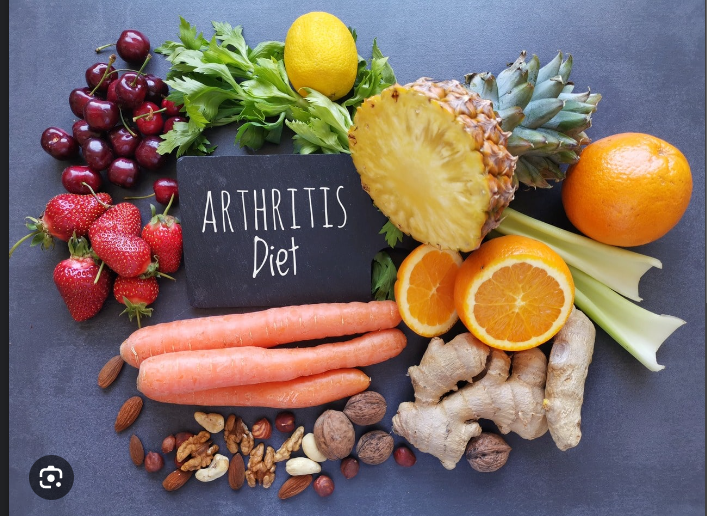
The notion of “food as medicine,” which dates back to Hippocrates, holds that our general health is influenced by the things we eat and drink. The relationship between diet and joint health is especially important for people who have arthritis, a disease marked by inflammation in the joints. Certain foods are known to both cause and prevent inflammation.
What is Arthritis?
More than 100 different forms of arthritis and associated diseases exist, each with unique causes and therapies. The most prevalent ones, rheumatoid arthritis and osteoarthritis, both cause inflammation in the joints. Mild to severe symptoms are common and include pain, stiffness, edema, and decreased range of motion in certain joints. Severe arthritis-related chronic pain can greatly interfere with day-to-day activities, such as walking comfortably and carrying out work-related tasks.
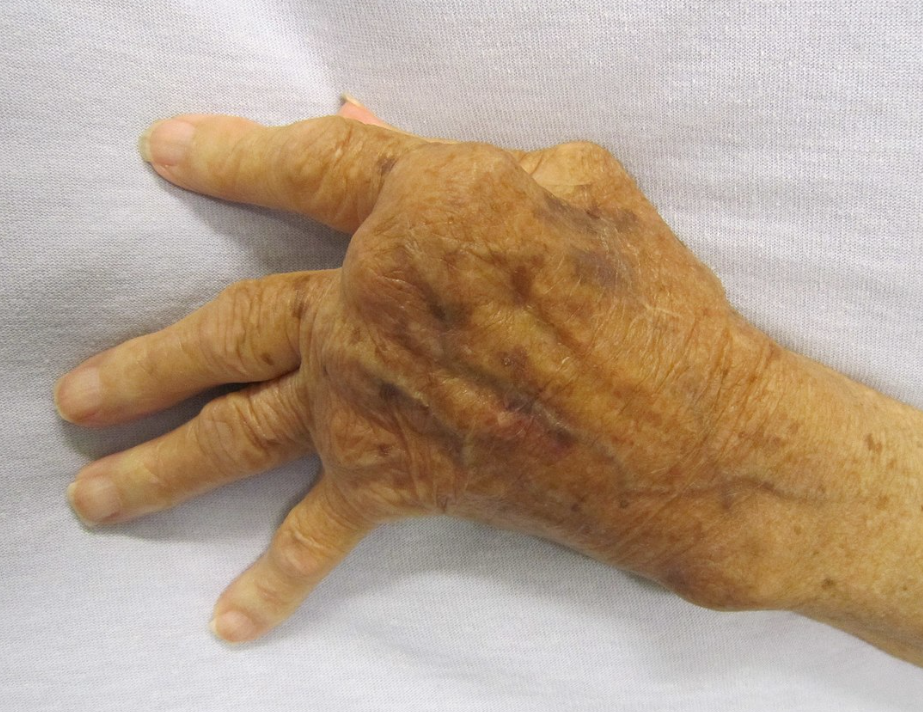
Can arthritis be treated with a diet? In addition to “cleaning up” the food, doctors prescribe strong drugs for inflammation, which is crucial, according to Sonya Angelone, a registered dietitian in the San Francisco Bay Area and an official for the Academy of Nutrition and Dietetics. Because of this, the majority of doctors advocate for healthy lifestyle changes as part of an effective arthritis treatment strategy. Eating a well-balanced diet can help you manage your arthritis symptoms. According to Dr. Amish J. Dave, a board-certified rheumatologist from Virginia Mason Franciscan Health in Seattle, “there are lifestyle factors we can’t prescribe to a pharmacy.” “When patients are eating healthily, exercising, getting enough sleep, and managing their stress, the medications will be most beneficial.”
Why Food Matters for Arthritis
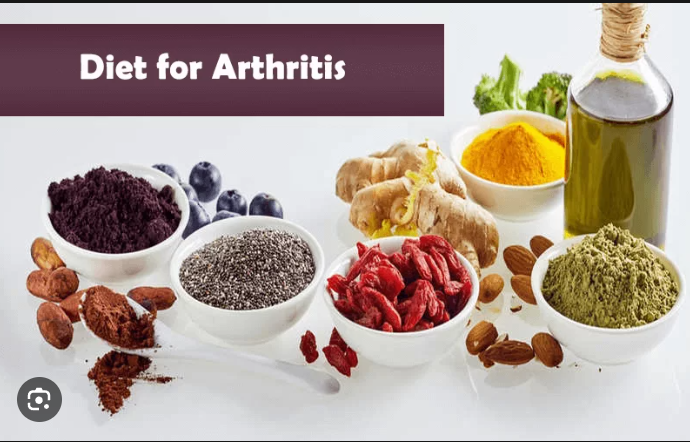
An increasing amount of evidence indicates that some meals, such as simple carbohydrates and foods heavy in sugar, sodium, and saturated fat, can dramatically exacerbate inflammation and the ensuing chronic pain. According to Dave, “we know more about the gut microbiome and what affects it.” “Foods that are highly processed, contain preservatives, or have an excess of sugar seem to exacerbate inflammation and increase the amount of “bad” gut flora without adding any beneficial nutrients.”
What Are Good Foods If You Have Arthritis?
Dave concentrates on foods that, according to research, have been demonstrated to reduce the symptoms of arthritis when it comes to endorsing them. Dr. Monica Guma, a rheumatologist and researcher at the University of California, San Diego, developed the ITIS diet, which he advocates for his patients. It’s a “supercharged” variation of the traditional Mediterranean diet that contains foods and herbs that reduce inflammation and may help with symptoms of arthritis and intestinal health. Similar to the Mediterranean diet, Dr. Weil’s anti-inflammatory diet places extra focus on green tea and chocolate because of their antioxidant qualities.
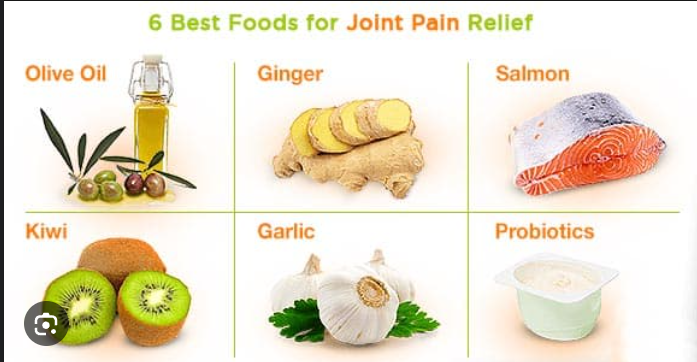
Foods to eat with arthritis:
- Berries. Antioxidant-rich fruits, such as grapes, raspberries, blueberries, and tart cherries, may help reduce inflammation and fend off many ailments like cancer and heart disease.
- Veggies. Broccoli, spinach, and Brussels sprouts are examples of dark green, leafy vegetables that are high in vitamins A, C, and K. These vitamins shield cells from inflammation-causing free radical damage. Additionally, foods high in antioxidants, such as red and green peppers, sweet potatoes, carrots, onions, garlic, and shallots, can help reduce inflammation.
- Complete grains. A 2022 review published in Nutrients concluded that eating whole-grain diets has a moderate benefit for lowering inflammation, despite the lack of studies supporting a relationship between whole grains and inflammation. Whole grains are rich in fiber, which can help reduce levels of “bad” LDL cholesterol, and they also include antioxidants and vitamin B, which protect cells.
- Plants. Some herbs, like ginger, have strong anti-inflammatory properties, but others must be prepared in a certain way in order to be effectively absorbed. It is believed that polyphenols found in ginger, including shogaol and gingerol (the flavoring ingredient), inhibit the production of pro-inflammatory cytokines.
- Avocados. Avocados contain a high concentration of anti-inflammatory monounsaturated fat and are a strong source of vitamin E, which has anti-inflammatory properties. Eating an avocado every day has been shown in studies to raise “good” levels of HDL cholesterol.
- Seeds and nuts. A healthy source of polyunsaturated and monounsaturated fats, which can help lower cholesterol, are peanuts, almonds, pistachios, and flaxseed. They also contain antioxidant vitamins and minerals, which can help control inflammation.
- Ginger. Turmeric’s naturally occurring compound, curcumin, has anti-inflammatory qualities, but further research is required to fully grasp these benefits.
- Verdant tea. Packed with plant elements that have strong anti-inflammatory properties, such as polyphenols and antioxidants, green tea is believed to have a special benefit for people who suffer from arthritis.
- Additional virgin olive oil Numerous studies have demonstrated that the polyphenols in extra-virgin olive oil can effectively combat inflammation and lessen joint discomfort.
- Fish, salmon. Omega-3 fatty acids, found in fatty fish like tuna and salmon, have anti-inflammatory properties. Studies reveal that eating fish high in omega-3 fatty acids lowers the risk of developing inflammatory disorders and helps people with arthritis manage their current joint pain and swelling.
- Onion. It is thought that the sulfur-containing chemicals in garlic can reduce inflammation and cartilage deterioration.
Bottom Line
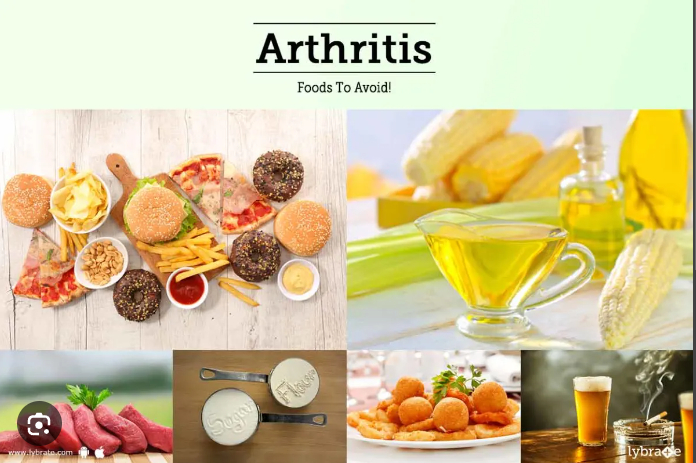
There may not be a miracle diet for arthritis, but many foods can help improve symptoms by fighting inflammation and providing nutrients to promote bone, muscle, and immune system function.
A nutritious diet can also aid people with arthritis by lowering their blood pressure and cholesterol, maintaining a healthy weight, fending off chronic illnesses, enhancing joint function, and reducing their risk of further injury.
Dave encourages patients to consult a certified dietitian to help decide on a more personalized strategy for avoiding foods that could aggravate inflammation, particularly considering that various gut bacterial strains are believed to impact certain diseases and proliferate in response to specific food types.
“If at all possible, it’s always beneficial to make more significant dietary changes under professional guidance,” advises Dave. “A dietitian can assist with skill sets such as maintaining a food journal to discuss with your doctor or paying closer attention to which foods are processed and which aren’t.”
Dave cautions against expensive diets or supplements, advising patients to just focus on healthy living and make modifiable lifestyle adjustments they can stick with long-term.
“If you stick to it for one or two weeks, that’s great, but it’s a chronic condition. Just taking a break from your regular diet will likely result in joint pain and inflammation returning,” Dave says. “Whether it’s an extra serving of salmon a week or yogurt a day, just do what you can. Don’t let perfection be the enemy of progress.”
Also read-Drinking Advice : For The Diabetes Patients
Images source: Google
Disclaimer: The opinions and suggestions expressed in this article are solely those of the individual analysts. These are not the opinions of HNN. For more, please consult with your doctor.







